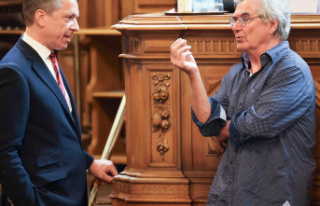Finally, it took the vice president to bring everything to a good end. After weeks of tough inner-party persuasion, the Democrats got their climate resolutions through the US Senate, thanks to the incumbent vote of Kamala Harris. It is certain that the House of Representatives will follow suit. There, the democratic majority is a little more comfortable.
Joe Biden spoke of a "big deal", but the issues of inflation, taxes and health make the billion-dollar package a really big deal for the US President. Especially domestically. Internationally, the focus is naturally on the climate decisions. The USA produce the second highest CO2 emissions in the world. If it is possible to reduce these emissions, a lot will be gained in curbing global warming.
The key points of the US climate package are:
The decisions come at a time when the effects of climate change are also becoming increasingly noticeable in the USA due to heat, drought and persistent, large-scale forest fires. Recently, a previously unrecorded flood of rain in California's Death Valley, one of the hottest and driest areas in the world, caused a sensation. 75 percent of the usual amount of rain for a whole year fell on a single day.
The Biden administration's new climate package "will not solve the problem, to put it bluntly," said Michael Mann of Pennsylvania State University, one of the world's most renowned climate researchers, on CNN. But it is progress that the measures could reduce climate-damaging CO2 emissions in the USA by 40 percent by 2030. The aim must be to bring emissions to zero by mid-century in order to limit global warming to below three degrees plus compared to the pre-industrial age. Because beyond this mark, the effects of climate change would be so severe that our ability to adapt would not be sufficient, Mann refers to the current state of research.
For the climate researcher, it is essential that the United States take on a pioneering role for other major climate sinners such as India or China. Mann is not deterred by the fact that China only last week terminated all climate cooperation with the United States because of the Taiwan crisis. This is daily politics. At the climate summit in Glasgow, China also agreed to stop its emissions and ultimately reduce them to zero. When the Obama administration made the United States a pioneer in climate protection, China eventually followed suit, and Trump then backed away from the Paris Climate Agreement, prompting China to be less strict with itself as well. "And now we're back," said Michael Mann.
However, it remains to be seen whether the climate researcher's analysis will be correct. The stock market for renewable energies was initially unimpressed by the US resolutions on Sunday evening (local time). There were no higher price gains. Analysts pointed out that the positive effect had already occurred at the end of July, when blocker Joe Manchin, the Democratic Senator from West Virginia, made his approval of the slimmed-down climate package public.
Sources: US Senate Democrats; CNN; The Hill; CO2 online; Ecoreporter












